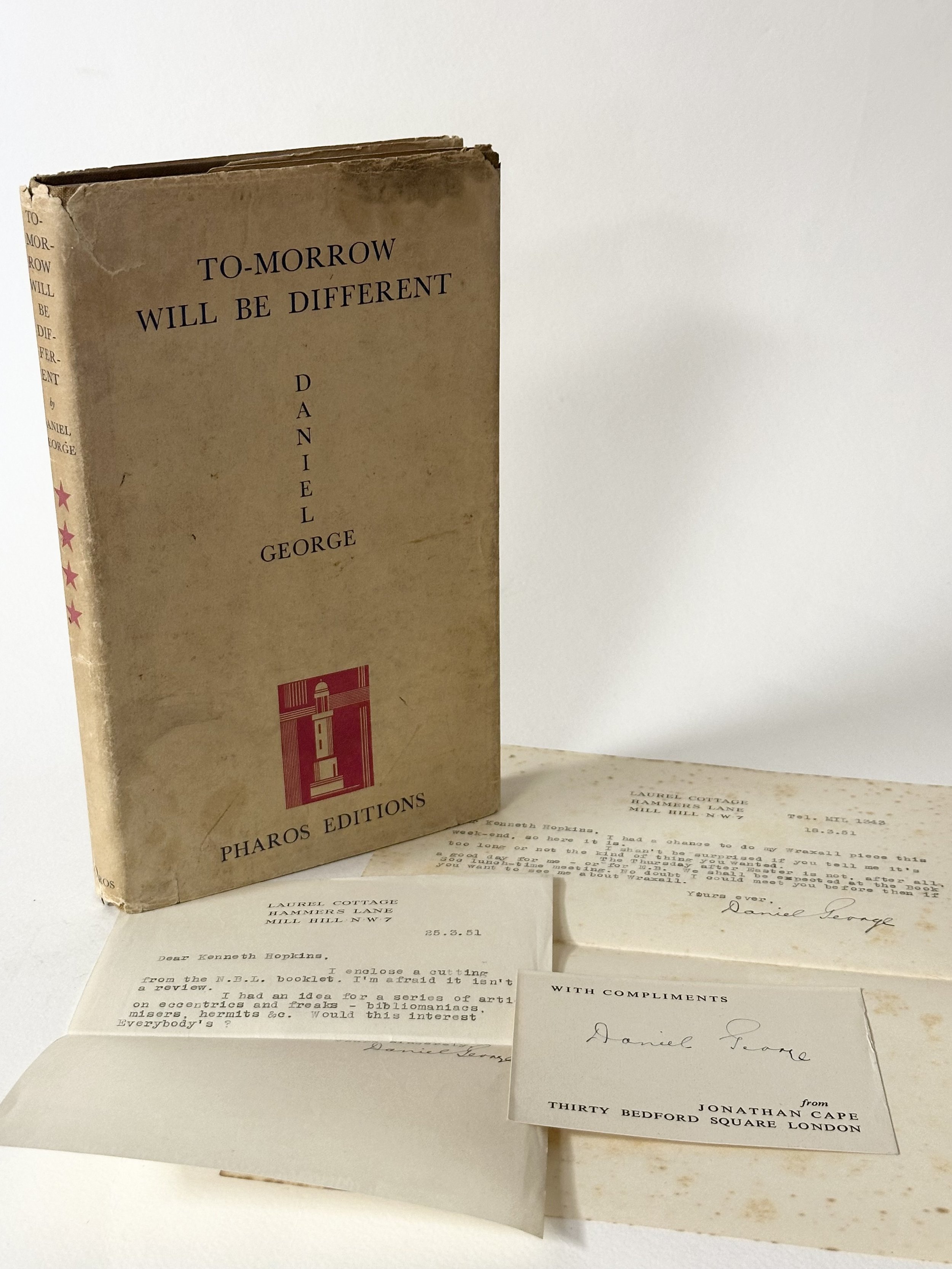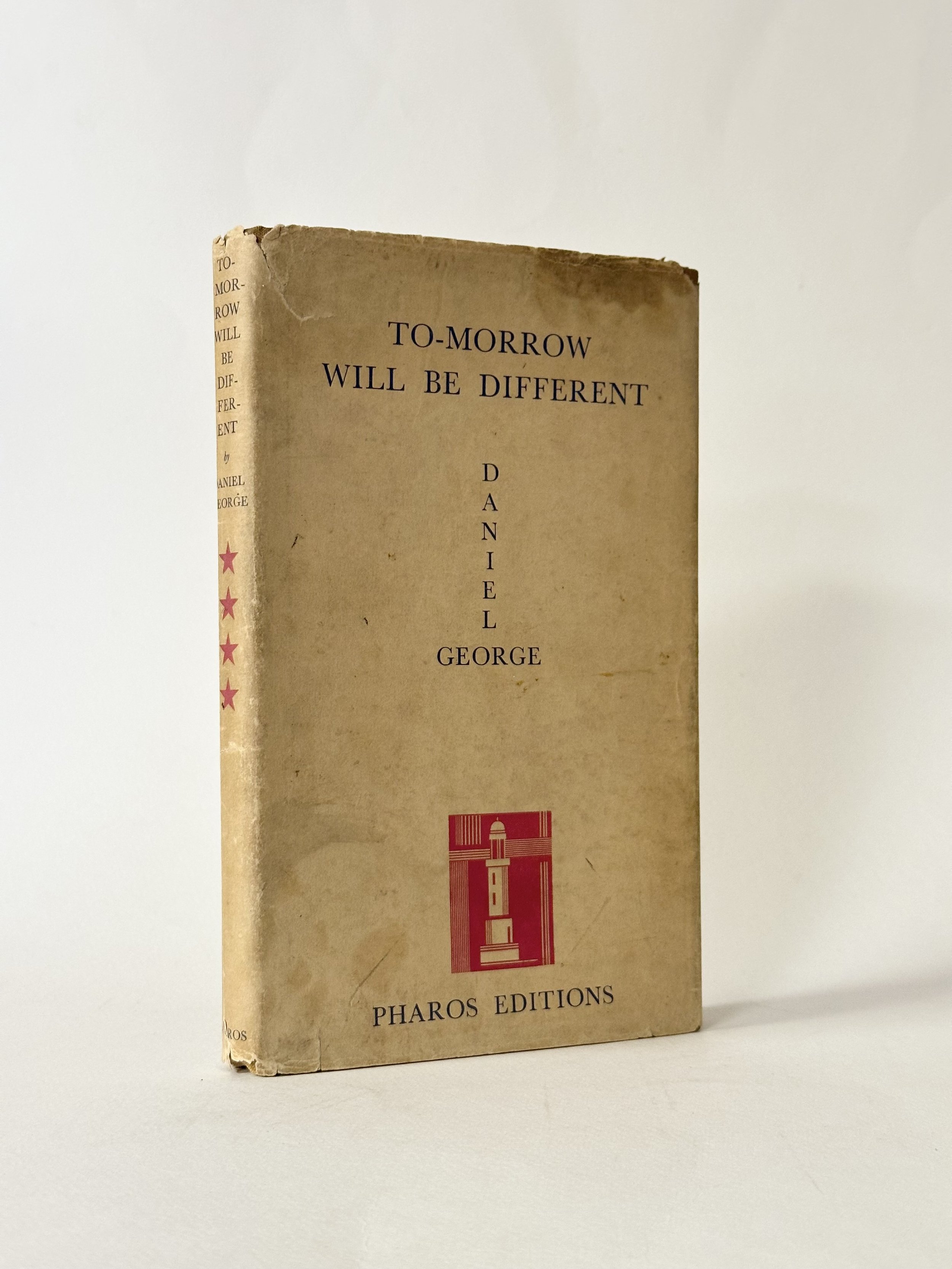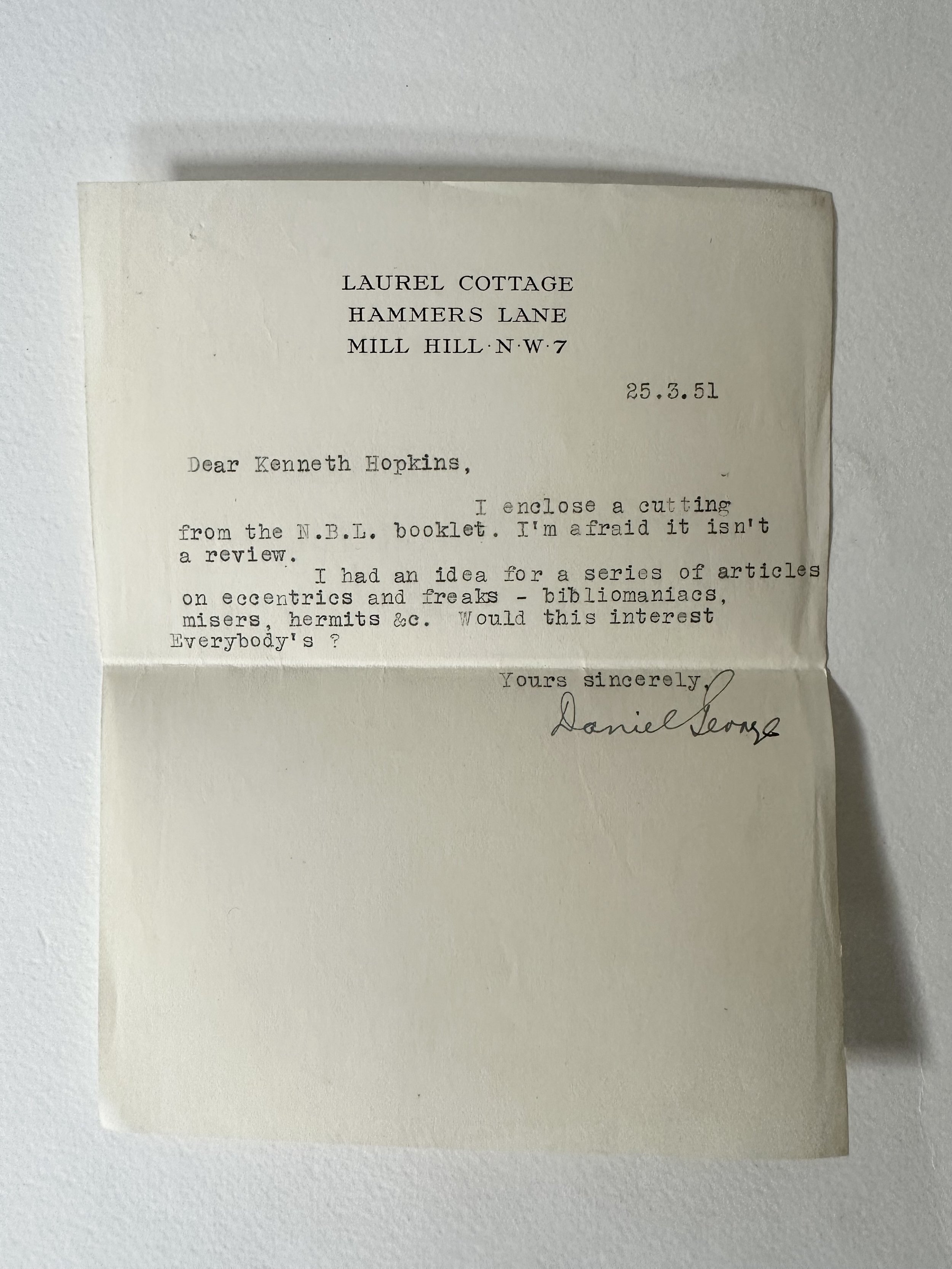 Image 1 of 5
Image 1 of 5

 Image 2 of 5
Image 2 of 5

 Image 3 of 5
Image 3 of 5

 Image 4 of 5
Image 4 of 5

 Image 5 of 5
Image 5 of 5






GEORGE, Daniel. To-morrow Will Be Different (signed with TLS)
GEORGE, Daniel. To-morrow Will Be Different: A Narrative Verse. London: Pharos. 1932. 8vo. First edition. Publisher’s brown cloth lettered in blue to the spine and upper board, all edges untrimmed. In the dust jacket. This copy inscribed by the author to the front endpaper, and with two typed letters signed, plus a compliments slip signed, and several other clippings and pieces. A very good copy, the cloth a touch marked, the corners and tips gently bumped. The binding tight and square, the contents clean with a portrait clipping of the author to rear pastedown. The dust jacket unclipped (six shillings net) with several nicks and chips, some light marks and stains.
The first published work by Daniel George, whose real name was Daniel George Bunting, and whose legacy lies for the most part in his indefatigable two-decade career as a reader for the publishers, Jonathan Cape. Through his writing and in particular his reading, he befriended many authors and publishers—Ian Fleming, whom he co-discovered, called him “the last guardian of the ark of the covenant in English literature”—and became known as an encyclopaedia of literature and bibliography. The work itself is an Hawthorneian ‘journal of a human heart for a single day’, presumably somewhat autobiographical and often somber in tone. In his final years, he suffered from a stroke and friends came to his financial aid ‘to relieve him from anxiety’—these supporters included Fleming, Rosamond Lehmann, Rupert Hart-Davis, Allen Lane, Stephen Spender, Veronica Wedgwood and Angus Wilson. The typed letters signed are to the poet, Kenneth Hopkins; one suggests a potential article Bunting has in mind about eccentrics and bibliomaniacs, and another about a meeting reschedule—Bunting had to attend a Book Society meeting instead, the theatre of his erudite exposition. The in-book gift inscription is dated 1944. An uncommon volume by one of the most important yet almost forgotten literary figures in twentieth century bibliography.
GEORGE, Daniel. To-morrow Will Be Different: A Narrative Verse. London: Pharos. 1932. 8vo. First edition. Publisher’s brown cloth lettered in blue to the spine and upper board, all edges untrimmed. In the dust jacket. This copy inscribed by the author to the front endpaper, and with two typed letters signed, plus a compliments slip signed, and several other clippings and pieces. A very good copy, the cloth a touch marked, the corners and tips gently bumped. The binding tight and square, the contents clean with a portrait clipping of the author to rear pastedown. The dust jacket unclipped (six shillings net) with several nicks and chips, some light marks and stains.
The first published work by Daniel George, whose real name was Daniel George Bunting, and whose legacy lies for the most part in his indefatigable two-decade career as a reader for the publishers, Jonathan Cape. Through his writing and in particular his reading, he befriended many authors and publishers—Ian Fleming, whom he co-discovered, called him “the last guardian of the ark of the covenant in English literature”—and became known as an encyclopaedia of literature and bibliography. The work itself is an Hawthorneian ‘journal of a human heart for a single day’, presumably somewhat autobiographical and often somber in tone. In his final years, he suffered from a stroke and friends came to his financial aid ‘to relieve him from anxiety’—these supporters included Fleming, Rosamond Lehmann, Rupert Hart-Davis, Allen Lane, Stephen Spender, Veronica Wedgwood and Angus Wilson. The typed letters signed are to the poet, Kenneth Hopkins; one suggests a potential article Bunting has in mind about eccentrics and bibliomaniacs, and another about a meeting reschedule—Bunting had to attend a Book Society meeting instead, the theatre of his erudite exposition. The in-book gift inscription is dated 1944. An uncommon volume by one of the most important yet almost forgotten literary figures in twentieth century bibliography.
